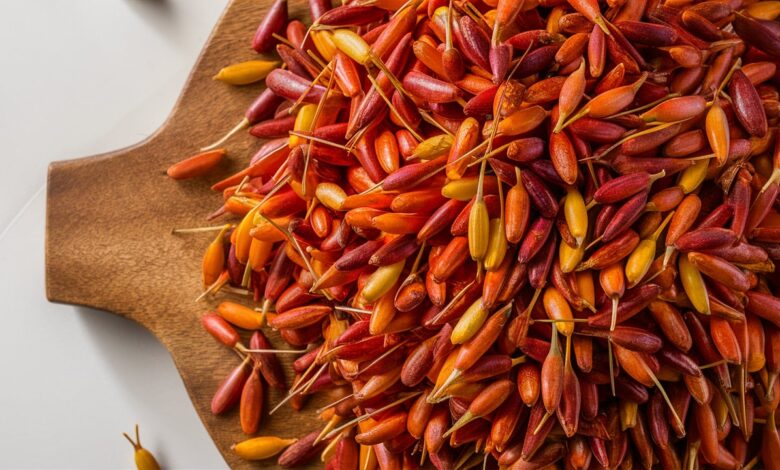Foenegriek: The Complete Guide to Health Benefits, Uses, Nutrition, and Remedies

Foenegriek, commonly known as fenugreek, is a powerful herb and medicinal seed celebrated for centuries in traditional medicine, cuisine, and natural wellness practices. Originating from the Mediterranean region and South Asia, foenegriek has gained global recognition due to its exceptional health benefits, strong nutritional profile, and therapeutic properties. Whether used in cooking for its distinct flavor or consumed as a supplement for health improvement, foenegriek plays a vital role in supporting digestion, hormonal balance, blood sugar control, and overall vitality. This comprehensive article explores everything you need to know about foenegriek — its benefits, uses, nutritional value, side effects, and why it remains a treasured natural remedy in modern health routines.
What is Foenegriek? A Historical and Botanical Overview
Foenegriek (Trigonella foenum-graecum) is a small annual herb with light green leaves and golden-brown seeds. Historically used in ancient Egypt, Greece, and India, it served as a medicinal herb, spice, and even cosmetic ingredient. Today, foenegriek is found in powder, seed, capsule, and extract form, widely used in Ayurvedic and Western herbal medicine. Its slightly bitter, nutty taste makes it a popular ingredient in curries, teas, and traditional tonics.
Nutritional Profile of Foenegriek Seeds
One of the primary reasons foenegriek is valued is due to its rich nutritional composition. It contains:
-
Protein and essential amino acids
-
Dietary fiber, crucial for digestive health
-
Iron, magnesium, potassium, and calcium for metabolic support
-
Saponins and flavonoids, offering anti-inflammatory and antioxidant effects
This combination makes foenegriek one of the best natural supplements for restoring health from within.
Top Health Benefits of Foenegriek
1. Foenegriek for Blood Sugar Control
Foenegriek is widely used by individuals managing diabetes or insulin resistance. Its high fiber content helps slow down carbohydrate absorption, leading to more stable blood sugar levels. Consuming foenegriek regularly may support better glycemic control and reduce sugar spikes after meals.
2. Supports Digestion and Gut Health
Foenegriek seeds are known to soothe digestive discomfort such as acid reflux, bloating, and constipation. Their mucilage content forms a protective coating in the stomach, aiding in digestion and enhancing gut health naturally.
3. Promotes Hormonal Balance in Women
Foenegriek is traditionally used to support women’s health by helping balance estrogen levels, reducing menstrual cramps, and promoting lactation in nursing mothers. Its phytoestrogen compounds act as mild hormone regulators, beneficial during PMS and menopause.
4. Enhances Male Vitality and Testosterone
Studies suggest that foenegriek may increase libido and support natural testosterone production in men. It is commonly found in herbal supplements aimed at improving stamina, muscle strength, and vitality.
5. Anti-Inflammatory and Antioxidant Properties
The antioxidants in foenegriek help fight free radicals and inflammation, protecting cells from damage. This makes it highly effective for joint support, arthritis relief, and overall immune defense.
Traditional and Culinary Uses of Foenegriek
Foenegriek is a staple in many cuisines:
-
Seeds are roasted for spice blends like curry and masala
-
Powder is added to soups and herbal tonics
-
Leaves (methi) are used in Indian dishes for flavor and health
In traditional medicine, foenegriek tea or soaked seeds are used to treat digestive and respiratory issues, while paste forms are applied to the skin for inflammation and burns.
How to Use Foenegriek: Seeds, Powder, and Supplements
Possible Side Effects and Precautions
While foenegriek is generally safe, excessive consumption may cause digestive discomfort, a maple syrup-like body odor, or allergic reactions in sensitive individuals. Pregnant women should consult a physician before using foenegriek supplements due to potential hormonal effects.
Foenegriek for Hair and Skin Care
Foenegriek seeds are widely used in beauty remedies. When soaked and ground into a paste, they nourish the scalp, reduce dandruff, and promote hair growth. The anti-inflammatory property also helps soothe acne, skin irritation, and sun damage.
Conclusion
Foenegriek is a remarkable natural healing agent with powerful benefits for the body, mind, and lifestyle. From regulating blood sugar and supporting digestion to balancing hormones and enhancing vitality, it continues to be a trusted herb across cultures. Incorporating foenegriek into daily routines — through food, tea, or supplements — offers a natural path to better wellness. As science continues to uncover its potential, foenegriek remains a timeless remedy rooted in tradition yet relevant to modern health needs.
FAQs About Foenegriek
Q1: Is foenegriek safe to consume daily?
Yes, in moderate amounts, foenegriek is safe and beneficial for most people, especially when consumed through food or herbal drinks.
Q2: Can foenegriek help with weight loss?
Foenegriek’s fiber content can promote fullness, reduce cravings, and naturally support weight management.
Q3: How should foenegriek seeds be prepared?
The seeds can be soaked overnight and consumed directly, or boiled to make a soothing herbal tea.
Q4: Can foenegriek increase breast milk production?
Yes, foenegriek is traditionally used as a galactagogue to enhance milk supply in breastfeeding mothers, but medical guidance is recommended.
Q5: Does foenegriek affect hormones?
Foenegriek contains natural phytoestrogens which may support hormonal balance, especially in women experiencing menopause or PMS.



